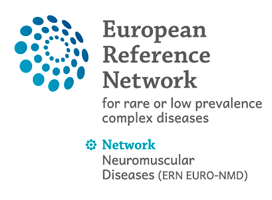28 Apr 2020
The North American mitochondrial disease registry
Authors:
Xiomara Q Rosales, John L P Thompson, Richard Haas, Johan L K Van Hove, Amel Karaa, Danuta Krotoski, Kristin Engelstad, Richard Buchsbaum, Salvatore DiMauro, Michio Hirano, North American Mitochondrial Disease Consortium
Aim: The North American Mitochondrial Disease Consortium (NAMDC) comprises a network of 17 clinical centers with a mission to conduct translational research on mitochondrial diseases. NAMDC is a part of the Rare Disease Clinical Research Network (RDCRN) and is funded by the National Institutes of Health. To foster its mission, NAMDC has implemented a comprehensive Mitochondrial Disease Clinical Registry (hereafter NAMDC Registry), collected biosamples deposited into the NAMDC Biorepository, defined phenotypes and genotypes of specific disorders, collected natural history data, identified outcome measures, characterized safety and long-term toxicity and efficacy of promising therapies, and trained young investigators interested in patient-oriented research in mitochondrial disease.
Methods: Research conducted by NAMDC is built on the foundation of the Clinical Registry. Data within the registry are encrypted and maintained in a centralized database at Columbia University Medical Center. In addition to clinical data, NAMDC has established a mitochondrial disease biorepository, collecting DNA, plasma, cell, and tissue samples. Specimens are assigned coded identifiers in compliance with all relevant regulatory entities and with emerging NIH guidelines for biorepositories. NAMDC funds two pilot projects each year. Pilot grants are small grants typically supporting an early stage concept to obtain preliminary data. Pilot grants must enhance and address major issues in mitochondrial medicine and specific areas of need for the field and for the successful outcome of NAMDC. The grant selection process is facilitated by input from multiple stakeholders including patient organizations and the strategic leadership of NAMDC. To train new mitochondrial disease investigators, NAMDC has established a Fellowship Program which offers a unique training opportunity to senior postdoctoral clinical fellows. The fellowship includes a 6-month period of intensive training in clinical trial methodology through the Clinical Research Enhancement through Supplemental Training program and equivalent programs at the other sites, along with rotations up to 3 months each to two additional consortium sites where a rich and varied training experience is provided. Nine core educational sites participate in this training program, each offering a summer grant program in mitochondrial medicine funded by our NAMDC partner the United Mitochondrial Disease Foundation (www.umdf.org). All clinical research in NAMDC depends on the participation of mitochondrial disease patients. Since individual mitochondrial disorders are often extremely rare, major communication and recruitment efforts are required. Therefore, NAMDC has forged a very close partnership with the premier patient advocacy group for mitochondrial diseases in North America, the United Mitochondrial Disease Foundation (UMDF).
Results: The NAMDC Registry has confirmed the clinical and genetical heterogeneity of mitochondrial diseases due to primary mutations in mitochondrial DNA or nuclear DNA. During the 8 years of this NIH-U54 grant, this consortium, acting in close collaboration with a patient advocacy group, the UMDF, has effectively addressed these complex diseases. NAMDC has expanded a powerful patient registry with more than 1600 patients enrolled to date, a website for education and recruitment of patients (www.namdc.org), a NAMDC biorepository housed at the Mayo Clinic in Rochester, MN, and essential diagnostic guidelines for consensus research. In addition, eight clinical studies have been initiated and the NAMDC fellowship program has been actively training the next generation of mitochondrial disease clinical investigators, of which six have completed the program and remain actively involved in mitochondrial disease research.
Conclusion: The NAMDC Patient Registry and Biorepository is actively facilitating mitochondrial disease research, and accelerating progress in the understanding and treatment of mitochondrial diseases.

